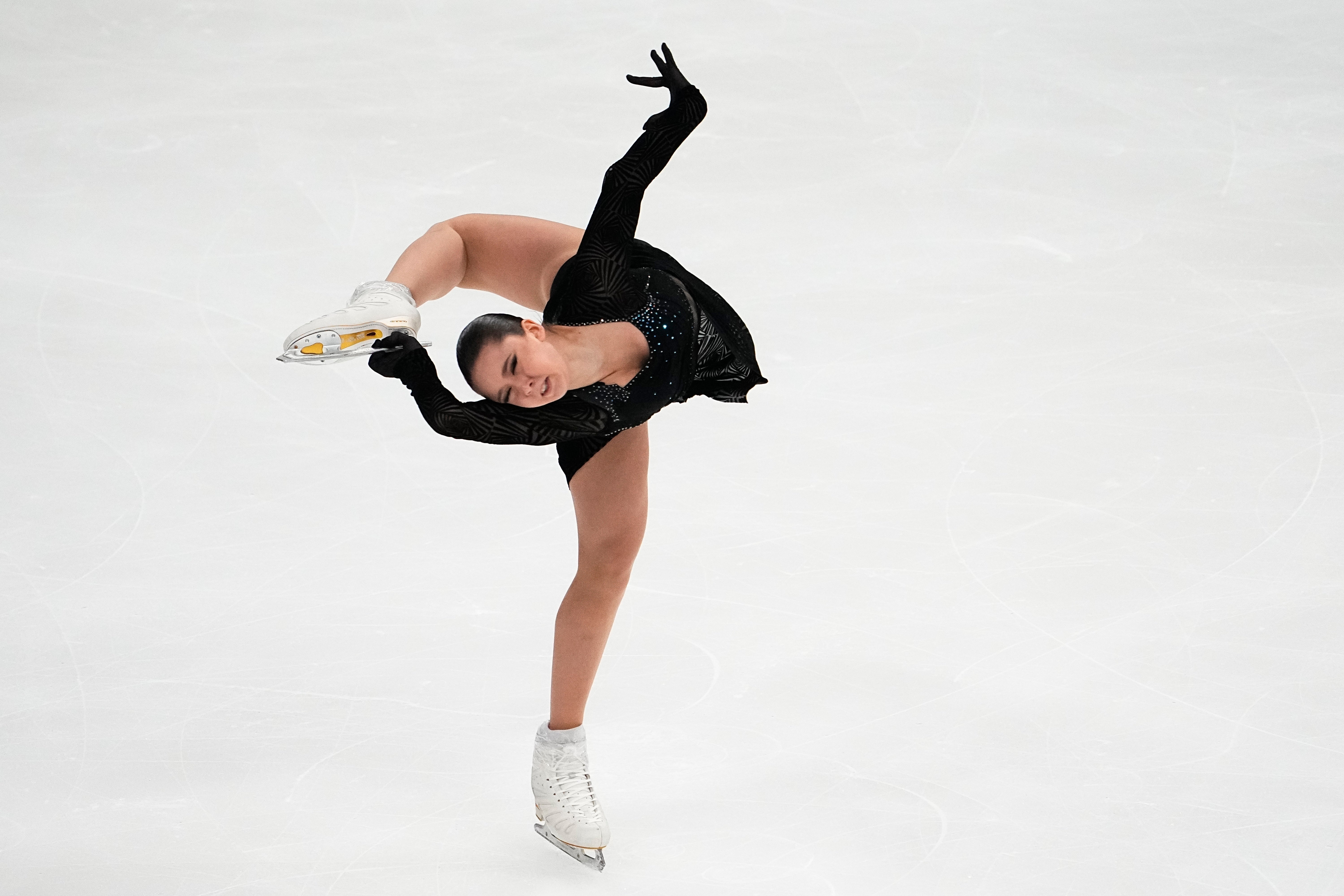Russian skater Valieva's doping case to go to sports court
The World Anti-Doping Agency says it has appealed Russian figure skater Kamila Valieva’s doping case to the Court of Arbitration for Sport and is seeking a four-year ban

Your support helps us to tell the story
From reproductive rights to climate change to Big Tech, The Independent is on the ground when the story is developing. Whether it's investigating the financials of Elon Musk's pro-Trump PAC or producing our latest documentary, 'The A Word', which shines a light on the American women fighting for reproductive rights, we know how important it is to parse out the facts from the messaging.
At such a critical moment in US history, we need reporters on the ground. Your donation allows us to keep sending journalists to speak to both sides of the story.
The Independent is trusted by Americans across the entire political spectrum. And unlike many other quality news outlets, we choose not to lock Americans out of our reporting and analysis with paywalls. We believe quality journalism should be available to everyone, paid for by those who can afford it.
Your support makes all the difference.The World Anti-Doping Agency has appealed Russian figure skater Kamila Valieva's doping case to the Court of Arbitration for Sport and said Tuesday it is seeking a four-year ban.
WADA is objecting to a finding by a Russian tribunal that Valieva bore “no fault or negligence” in the case, which overshadowed last year's Beijing Olympics. WADA wants a four-year ban and for Valieva's results to be disqualified from the date she gave the sample, Dec. 25, 2021. That would include the Olympics.
A year after the Beijing Games finished, no medal ceremony has taken place for the team competition because of the uncertainty.
WADA said the Russian decision was “wrong under the terms of the World Anti-Doping Code in this case,” without giving further detail.
The Russian skater, who was then 15, won Olympic gold in the team competition in February before it was announced that a sample she gave two months before tested positive for a banned substance. The result was reported later because the laboratory which tested the sample was affected by the coronavirus pandemic.
Another CAS panel granted an emergency request for Valieva to be allowed to skate in the women’s competition at the Olympics, in part because of her age. Valieva was favored for the gold medal but falls in her free skate left her in fourth. She left the venue in tears.
After the Olympics finished, the Russian anti-doping agency took several months to carry out its own investigation and hold hearings. WADA tried to refer the case to CAS in November because of the delays before the Russian agency eventually produced a verdict, which it has not made public.
WADA, which has received a copy, said the Russian tribunal didn't impose a ban and only disqualified Valieva from one day of the 2021 Russian national championships, where the sample was taken.
U.S. Figure Skating said this month that it and its skaters, who placed second behind the Russians in the team event, were “deeply frustrated by the lack of a final decision" on the competition results.
The case put a spotlight on Russia's intensive training system for young skaters and in particular the practices of Valieva's coach, Eteri Tutberidze, who has worked with a series of champion Russian skaters. Tutberidze criticized Valieva as she left the ice in the women's event in Beijing.
Concerns around young skaters' physical and mental health led the International Skating Union to vote last year to raise the minimum age to compete at the Olympics to 17 in time for the next Winter Games in 2026.
___
More AP sports: https://apnews.com/hub/sports and https://twitter.com/AP_Sports